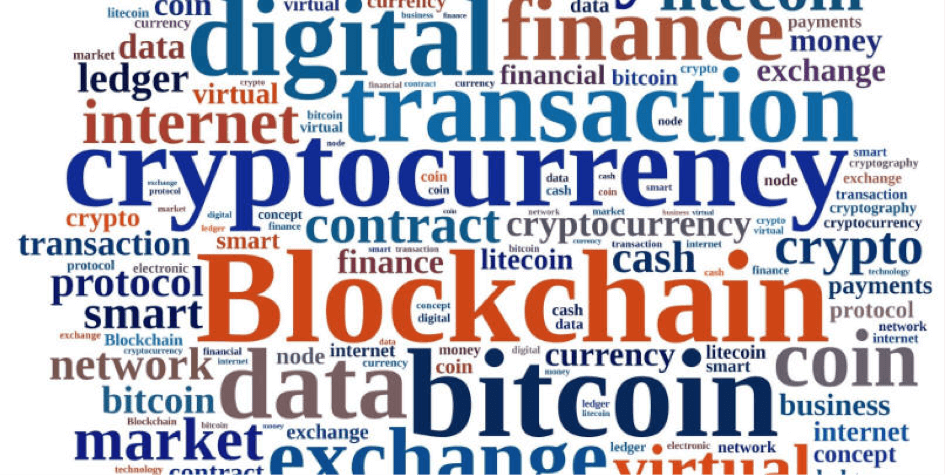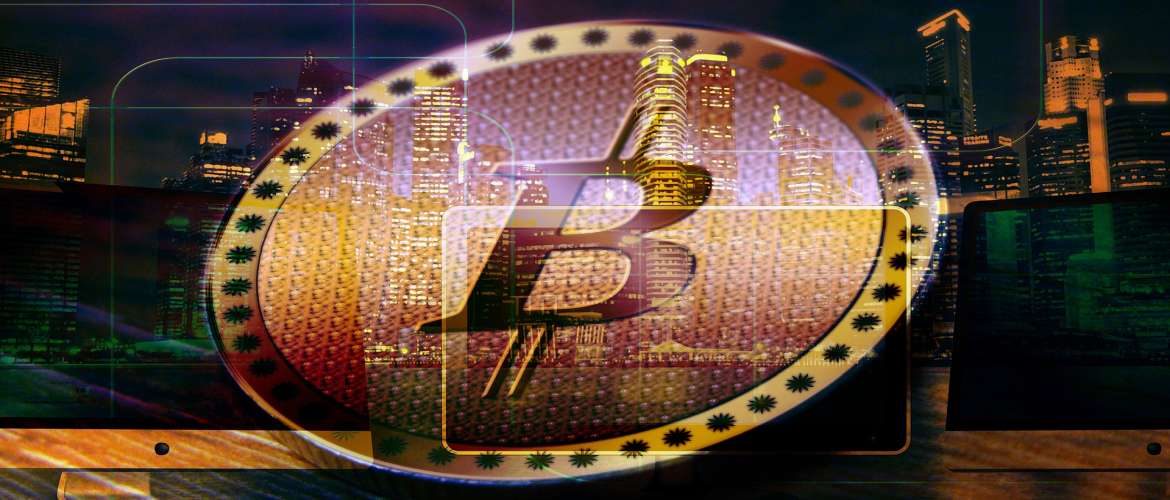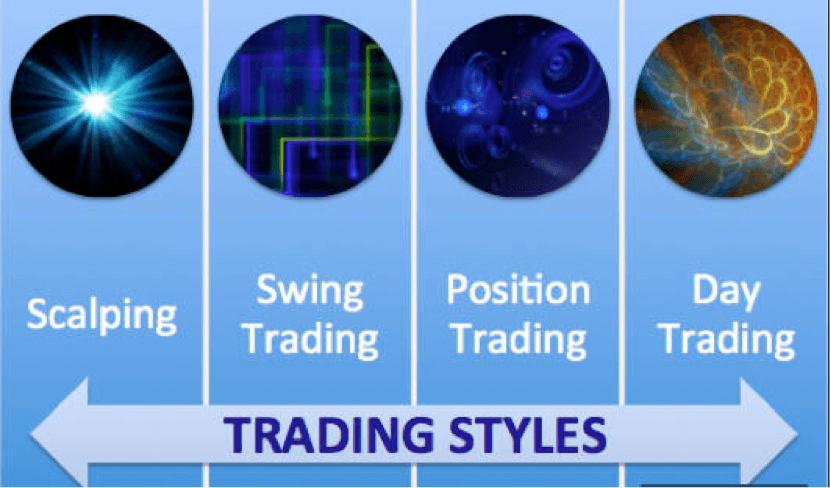What are cryptocurrencies
A cryptocurrency is a digital asset designed to work as a medium of exchange using cryptography to secure the transactions and to control the creation of additional units of the currency. Cryptocurrencies are trending all over the world as the internet payments have been accepted by many companies. Bitcoin became the first decentralized cryptocurrency in 2009 and since then, numerous cryptocurrencies have been created. There are now multiple platforms where users can crowdfund their projects into reality, this projects usually occur in the form of ICOs (Initial Coin Offering). ICO is used by a cryptocurrency startups to bypass the rigorous capital-raising process required by banks or venture capitalists. In an ICO offering, the cryptocurrency is sold to early investors/ supporters in exchange for legal tender or other cryptocurrencies. These coins are referred to as tokens that can be used to pay for goods and services on their platform or can be stashed away as an investment. According to analysts, cryptocurrency prices have significant room to appreciate and according to them the price hikes in last several years/months are not the sign of a bubble.

Cryptocurrency exchanges compared to CFD brokers
There are several ways to buy and sell cryptocurrency, through a cryptocurrency exchanges or through FX/CFD broker. There is the difference between exchanges and FX/CFD broker and there is always question which one to choose. Buying a coin on a crypto exchange on Saturday is just as easy as during peak trading hours on a Wednesday, not every broker supports weekend trading. Secure exchanges that are trustworthy and have good user ratings will rank higher than their peers. There are hundreds of cryptocurrency exchanges and their values of coins are slightly different from one another. Some investors/traders trade with exchanges directly but most exchanges were not built for the beginners, their customer support is not always available, crypto exchanges have also fallen victim to cyber attacks. In the meantime, every forex and CFD broker seems to be offering crypto trading. The major difference between brokers and exchanges is that with brokers you are actually trading a CFD(Contract For Difference), most of the time. On the cryptocurrency exchanges, traders and investors can really buy a cryptocurrency. Trading on an exchange grants you ownership of the cryptocurrency and you can transfer it to an address (your own wallet). One of the disadvantages of trading cryptocurrencies through exchanges is that the security of your funds is not as high. Some exchanges are not under direct regulation by any agency and deposits and withdrawals are usually more complicated when compared to most brokers. Keeping your funds on the exchange could be very dangerous. When choosing a broker or exchange, always check history and reviews to make sure their performance is consistent. Traders can find lots of useful information and reviews on the internet. The Internet also makes it very easy for people to post their experiences and useful information. A few key points that are also very important include regulation, customer service, platform type and reputation. I would rather choose a secure a friendly broker that offers many tools for its customers with a good reputation and 24/7 customer service.
What trading knowledge is needed to get started and how to improve your trading in the long run
It can be very difficult to figure out which cryptocurrencies to add to your portfolio. It is important to do a lot of research and try to identify those currencies which are likely to fit together in an overall ecosystem, rather than trying to pick a single winner. When doing an analysis for trading a cryptocurrency on a fundamental basis several things should be considered: the characteristics of the coin, how active is development, how active is the community, transaction activity. The successful trading is not gambling and I recommend trading a model or a system where the rules are clearly defined. In my opinion, every trader who wants to become profitable should use a combination of technical and fundamental analysis to make trading decisions. The profitable trading strategies are difficult to develop but traders should find the strategy that works best for them. My recommendation for all cryptocurrency traders is once you are comfortable with a particular trading strategy, remain faithful to that trading strategy and always use “stop loss” and “take profit” orders. Trading is hard work, and traders who have the discipline and patience to learn and follow specific rules can become profitable.

Future for cryptocurrencies
According to analysts interest for cryptocurrencies will continue to grow and the value of individual coins will increase in the future. Furthermore, the political atmosphere is going to have a major impact on how cryptocurrencies fair in the long term. Positive thing is that crypto-currency market is now attracting the attention of major banks, businesses and governments, all interested in the potential of the technology to provide greater efficiency and transparency in transactions. My opinion is that this is a highly speculative market but it has big potential.
Best cryptocurrency sources that are providing useful information for a cryptocurrency traders
There are quite a number of websites and sources that are providing useful information for a cryptocurrency traders. All of this sources will provide you the most comprehensive cryptocurrency’s statistics on its real-time prices, percentage changes, volume and other important data. I would always recommend to not depend on a single source. On those sites, you can find information for traders, investors, blockchain explorers, developers, cryptocurrency portfolio trackers. You can discuss cryptocurrencies and the underlying technologies with others in these communities. You can learn about investing in & the mechanics of ICOs and find out what ICOs are coming up soon. While tax regulations around cryptocurrencies vary from country to country, on places like this you can find all relevant information. You can find the best exchanges or brokers where you can buy BTC, ETH or other various altcoins. The best sources for a cryptocurrency traders include: Crypto Compare, Blockchain Charts, Coin Marketcap, Bitcointalk, Reddit, Cointelegraph, Coindesk, Twitter, Facebook and many others.

What you should know about Cryptocurrencies before trading
What are cryptocurrencies?
There are several types, the most well-known of which is bitcoin, the so-called “digital gold” that’s currently trading at around $17,645. The total market capitalization of all cryptocurrencies (a measure of the total value of the virtual currencies in circulation) has grown to $528 billion, and the price of bitcoin has increased to about $4,500 from $1,000 in early 2017, according to CoinMarketCap.com. Most experts agree that bitcoin will be the first large-scale cryptocurrency to survive.
But wait — there’s a catch to all this. While the technology behind cryptocurrencies, which uses cryptography to secure transactions, is promising, the same technology has been used for illicit purposes. This has created an “infinite regress of bad actors” on the internet and led to a market of unregulated and possibly fraudulent products and services that can’t be verified, said Steve Van Order, a professor of computer science at the University of Texas at Dallas.
“There’s always a black swan that comes along and spoils all your fun,” he said.
What makes cryptocurrencies unique?
All cryptocurrencies are controlled by a network of users. In this sense, they are more like blockchain applications rather than traditional currencies. Therefore, they are not tied to any government and can be used to send and receive money as well as transfer files.
Litecoin, Bitcoin, and Ether are among the most popular cryptocurrencies available. They all use peer-to-peer technology that guarantees that no one, including the issuer, can change or inflate the supply of a cryptocurrency. This is a key innovation that sets cryptocurrencies apart from fiat currencies and traditional bank transactions.
Currency and smart contracts
It’s very possible to create a simple cryptocurrency exchange from a standard smart contract on the Ethereum network. For example, a one-click exchange can be built that allows users to convert some bitcoin to ether, check the availability of the latter, and trade the same in a matter of seconds. Using this technology, users can create their own custom cryptocurrencies that work in a similar way to traditional currencies.
Alternative cryptocurrencies
Altcoins are quite a controversial subject. Some blockchain developers believe that there is no difference between altcoins and traditional currencies. Others, however, believe that altcoins should have their own blockchain, similar to the one used by Bitcoin and Ether. Some of these altcoins include: Dogecoin, Counterparty, and Novacoin.
For example, Dogecoin is one of the most popular cryptocurrencies available right now, boasting an estimated market capitalization of over $2 billion. Its value has increased by more than 3,500% since the start of 2016. Dogecoin’s appeal comes from the fact that its creators promised a 1 billion Dogecoin bounty for the person who comes up with a good use for the currency. The bounty, however, was later changed to 100,000 coins after concerns were raised about the fact that it would attract thieves.
Smart contracts
Bitcoin is considered a classic cryptocurrency since its network is decentralized. Ethereum is unique in that it allows users to create their own, “smart” contracts. This is a blockchain application that allows users to automatically process transactions between each other. For example, if someone purchases a pizza and then sends a payment to the restaurant for the delivery, the smart contract will not just deliver the food, but also pay the restaurant.
Decentralized exchanges
The Bitcoin network functions only by using a decentralized exchange. In this sense, it’s quite similar to a stock exchange where the buyers and sellers deal with each other directly. However, unlike the stock exchange, Bitcoin’s decentralized exchange offers a wider range of trading instruments as well as higher speed and lower costs.
The only difference is that Bitcoin’s decentralized exchange does not involve third-party involvement such as stock exchanges do. For example, a user can purchase a cryptocurrency directly on the Bitcoin network without using an exchange. In this sense, Bitcoin’s decentralized exchange offers users better buying and selling conditions and a greater level of security. This is because the decentralized exchange does not need an intermediary such as a stock exchange or an exchange for fiat currencies.
Things you should know before Trading with Bitcoin
What is Bitcoin?
Bitcoin is a type of digital currency that emerged in 2009. It runs on the web protocol of the Bitcoin Protocol – a system that offers the full guarantee of immutability and decentralisation. This is why every transaction of any kind is recorded in a public ledger called the blockchain. The Bitcoin protocol also provides the mechanism for online transactions and for agreeing on a shared ledger – the “blockchain” – with other nodes in a distributed network that is overseen by a computer program. It is like a central computer with all the processing power to ensure the integrity of the system. A virtual currency is a type of digital currency which runs on a software protocol – known as a blockchain’s “code’ – which is the basis for creating transactions.
Bitcoin is working with many banks and payment processors to offer more convenient and faster transaction methods for consumers, which may include sending the coins to a loved one, or from overseas to a trusted bank account.
• Mining — The process of using complex calculations to solve complicated math problems to earn new bitcoins.
• Isolation — When coins are stored on a private server for protection or for digital currency transfers, to prevent unauthorized access.
• Regret — When you deposit or withdraw bitcoins. If you use the service of a Bitcoin-accepting bank, then you must have personal records of your accounts.
• Augmentation — When you sell a portion of your bitcoins to a third party, rather than changing your total holdings, you typically add the sale to the existing balance.
A wallet-to-wallet transfer offers each user freedom to move, send and receive the currency around in their own wallet. The protocol allows for fast, efficient transfers without the need for multiple banks. However, while there are many ways to move bitcoins in and out of your own bank, not all banks will allow them.
How does Bitcoin function?
Bitcoin works like the stock market – anyone can buy and sell. One means of getting BTC is to mine a digital currency with specialized software and equipment. Bitcoin mining has become increasingly easier over the past year or two, as software has made it more practical.
People can mine bitcoins through specialized software, called mining devices. These devices suck up electricity and become less efficient with each block mined. So if the mining operation consumes lots of power and electricity, the whole system slows down. If electricity consumption becomes a big problem, miners switch to energy-efficient devices such as batteries or solar panels.
You’ll also need some money to pay for mining equipment and other costs. Mining equipment can cost anywhere from a few hundred dollars to thousands of dollars. This isn’t the best way to get BTC; you might spend that money on more money.
To get bitcoins, miners are rewarded with the new coins produced by solving difficult mathematical problems. These problems also require working with the blockchain, which is a public ledger of all bitcoin transactions. The rewards for solving these problems can get quite high, depending on how hard you are working.
What you should know about Ethereum
How to get Ether
Ether can be bought from a number of exchanges, but with a slightly more complicated process.
When buying Ether at an exchange, the exchange will set a buy price. It will also change that price whenever the price of Ether changes, which is when a cryptocurrency forks, splits or splits into two currencies or more. A new exchange may begin the process by changing the buy price every day for several weeks. There is a great article on how to purchase Ether that will take you through all the steps and shows you the principles of buying Ether.
Buying Ether on Open Binance
There are several places to buy Ether on Open Binance. The site has a great interface that is easy to navigate and allows you to easily trade Ether. To buy Ether on Open Binance, you first need to go through their registration process. Once you go through their registration process, you can then buy Ether without paying a lot of fees. You can also buy Ether at various exchanges and exchanges that also provide other cryptocurrency currencies.
To buy Ether on Open Binance, go to the exchanges listed below and make sure that you are using a stock or other investing platform that is compatible with Ethereum.
To buy Ether on Kraken
As mentioned above, there are several places to buy Ether on Kraken. The company operates a number of exchanges, which allow traders to buy Ether. You have to register with Kraken to buy Ether on their exchange. Kraken will then set a buy price for your order and you can use this buy price to buy Ether at a number of different exchanges. For example, the buy price for trading Ether at Kraken is around 0.36 ETH/ETC.
What is Ethereum?
Ethereum consists of a decentralized network of self-contained computing nodes. Each computer on the network runs a copy of the Ethereum software and has full access to the entire blockchain, therefore controlling all the transactions and money.
In Ethereum, transactions and assets are recorded on a public blockchain. At the end of every three months, an audit of the blockchain is carried out. This process evaluates each transaction on the public ledger, verifying that all the required data has been transferred to the intended party.
Considering Trading with Ripple?
What is Ripple?
Ripple is a peer-to-peer network that allows digital assets to be transferred over a direct path rather than through a third-party intermediary. The Ripple network was originally launched in 2013, and its core feature is that transactions are generally confirmed in as little as one second. Once a transaction is confirmed in the network, it is immediately confirmed and available for spending on the distributed ledger, which keeps all records of the crypto-currency’s flow.
The main difference between Bitcoin and Ripple is that Bitcoin is more or less a digital currency that is based on blockchain, while Ripple is a distributed system that makes it possible to transfer value across borders. Bitcoin requires a third-party intermediary (like a bank) to facilitate payments and send the funds across the network.
What is Ripple’s banking industry advantage?
In addition to being the preferred mode of exchanging fiat currencies (like the dollar or euro), there are also a number of emerging uses for this technology in the banking sector. Many small businesses, for example, can now exchange money instantly between each other directly through a mobile app or website. Additionally, large companies such as banks and remittance providers are developing applications to facilitate cross-border payments across the digital currency industry. Since cryptocurrencies and digital currencies are often still seen as not proper currencies, banks may not want to involve themselves in a new technology until its more established.
XRP is a digital asset that is based on Ripple’s open source protocol (also referred to as open source Ripple protocol). The protocol’s goal is to facilitate payments across borders while removing the middleman in transactions.
For more information about Ripple please visit: http://www.ripple.com
Ripple’s partnership with banks has been very popular. Recently, the company created the White-Paper describing their vision for financial inclusion and democratisation. Ripple has also attracted several investment companies as well as thousands of small- and medium-sized businesses. This partnership allows Ripple to focus its development efforts and provide a solution for banks in emerging markets.
What to know about TRON (TRX) before trading
What is TRON?
TRON is the name of the cryptocurrency that powers the service. Also, it has a big purpose to make the Internet of Things (IoT) and virtual reality (VR) easier to make.
TRON’s primary aim is to make the Internet of Things (IoT). Its developers think that smart devices will become ever more connected, and hence they have conceived of the TRON blockchain as a perfect platform for designing and building IoT devices. Hence, TRON blockchain is also known as the Internet of Things consensus mechanism. It has helped the Internet become more reliable, seamless, and cost-effective.
TRON blockchain’s major role in creating the Internet of Value was also apparent from the very beginning. It emerged in 2016 when CEO Justin Sun, known for his work in the cryptocurrency space, took over as the CEO of the project. It was he who gave it its name and what was its primary goal. He laid out his vision for the platform in a single word — TRON.
How does TRON work?
The most basic understanding of TRON is that it uses the dApp model. With this model, developers create applications which allow users to make and exchange digital assets. The dApp model is used extensively in Ethereum, and TRON is looking to further expand its usage in the blockchain space.
TRON has a very streamlined user experience, as each step is explained clearly. One of the major benefits of TRON is that you don’t need to own any cryptocurrency to get started with it. Tron comes with a Web Wallet based on Ethereum, where up to 100,000 TRX can be stored and traded on major crypto exchanges.
The biggest disadvantage of TRON is that it does not yet have a Decentralized Web (DApp) Framework. While this is not a major drawback, it is something that developers are working on. If you would like to learn more about dApps, check out the Digital Assets section of our NEO guide.
What are the advantages of TRON?
- Provides great uptime
- Trustworthy
- Fast, cheap and free
- Raises capital by adopting new technologies
- Price trends
- Fast block generation
- Shared blockchain protocol
- Recognized by the SEC as a security
- High scalability
- Easy to set up
- Advanced mining algorithm
- Active developers
Where can you buy TRON?
While there are a variety of platforms that you can use to buy TRON, the easiest and fastest way to get your hands on your hands-on portion of the coins’ mining reward is through a trusted exchange. Such exchanges are constantly audited by third-party entities. This provides added peace of mind to users as the exchange has the necessary staffs to ensure all accounts are clear of suspicious activity.
Dice and HiBits are two of the most trusted crypto-to-crypto exchanges worldwide. You can also use platforms like Binance, Kucoin, and Liqui to acquire your TRX from a more trusted source.
What is the difference between TRON and Ethereum?
Tron and Ethereum are operating systems based on a blockchain, whereas TRON is a blockchain-based cryptocurrency. It is therefore appropriate to refer to it as a blockchain platform.
Tron is mostly associated with the social media and video-streaming platform it created, while Ethereum invented the blockchain. TRON is backed by China and has offices in Shanghai and Singapore. The virtual currency was launched in 2017.
Pros of TRON
The biggest advantage is that it is easier for small and medium enterprises (SMEs) to reach large online consumers through a decentralised and open ecosystem.
TRON has a strong team of developers, including experienced executives from Facebook, Twitter, and Alibaba. Some of its key executives were the CTO of LINE (LevelUp) and COO of WeChat.
TRON has a transparent and immutable public blockchain, meaning that any content posted by users can be traced back to the original source.
Another important advantage of TRON is its use of sidechains, or distributed storage networks. This decentralises the blockchain, providing a stronger security layer and significantly reducing network congestion. This makes TRON an ideal platform for smart-contracts and dApps. TRON even has a smart contract language built in.




